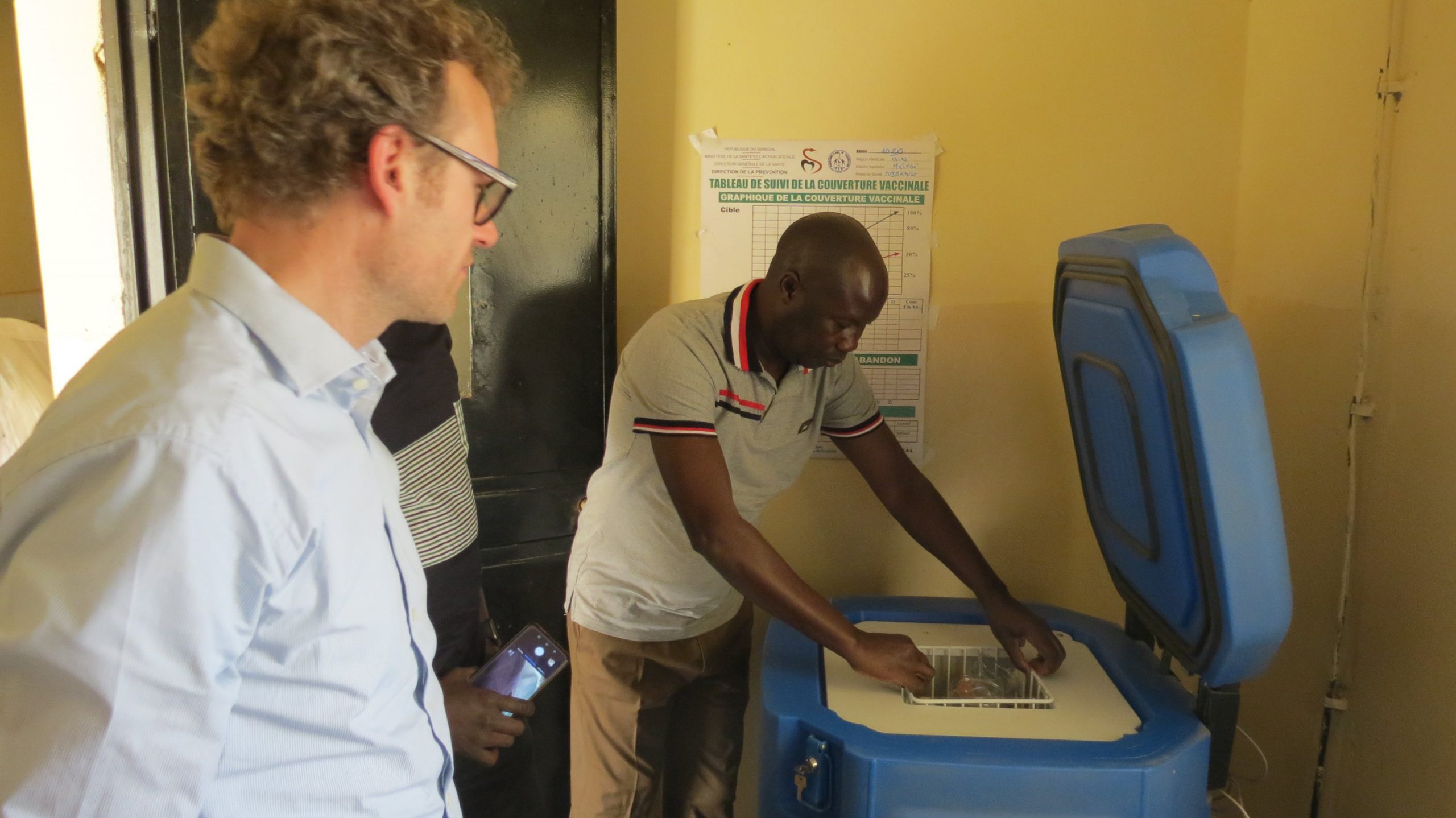This article was originally posted by PATH.
Billions of dollars have been invested in the vaccine cold chain—a global network of cold rooms, refrigerators, carriers, and boxes that keep lifesaving vaccines at just the right temperature.
If a vaccine gets too hot or too cold on its way to the person who needs it, the active ingredients can degrade and become less effective.
Of course, a vaccine refrigerator is only as reliable as its power source. A recent survey of 730 health centers in Cambodia, Ethiopia, Kenya, Myanmar, Nepal, and Niger showed that 25 percent still had no access to electricity, and another 25 percent were regularly affected by outages and other reliability issues.
With temperature such a critical factor, some vaccine refrigerators are designed to account for unavailable or unreliable grid electricity by using gas or kerosene or solar power. Each type has its pros and cons, but one in particular—the solar direct-drive refrigerator—brings a big fringe benefit.





